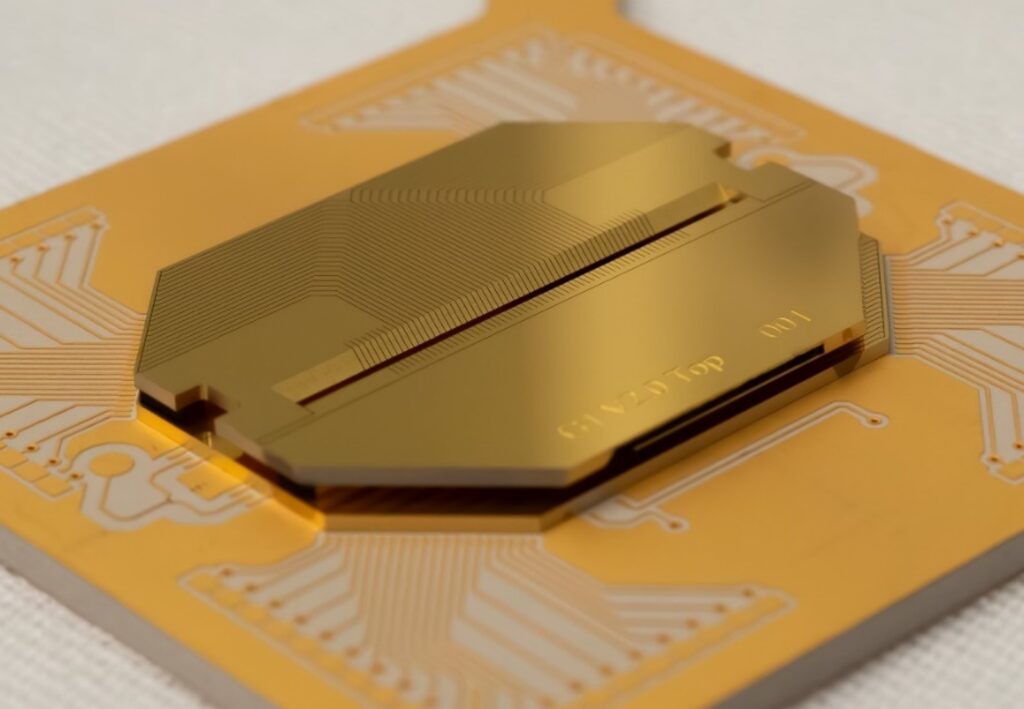A project of the start-up NeQxt GmbH

Production of ion traps for quantum computers
The project aimed to produce ion traps for the operation of quantum computers by using selective laser etching (SLE) and subsequent laser polishing of the ion trap electrodes. This increases the homogeneity of the electric field within the ion trap.
The quality of the ion traps and, in particular, the integration of optical components are of enormous importance for the performance and scalability of ion-based quantum computers. Laser polishing improves the production of ion traps, increases the trap's performance, and enables better integration of optical components.
The neQxt GmbH is a spin-off of the University of Mainz and is involved in the development and operation of ion-based quantum computers and the sale of ion traps.
Use of selective laser etching and laser polishing
During the QNC Space pilot project, around 25 ion traps were initially produced using the latest SLE process. The Fraunhofer ILT then carried out a parameter study on the laser polishing of the ion traps with regard to the degree of smoothing, shape accuracy, and homogeneity over the entire ion trap reproducibility.
After successfully identifying the most suitable parameters, demonstrator ion traps were produced at Fraunhofer ILT and then coated with gold by neQxt GmbH. The evaluation of the ion traps produced in this way was carried out by means of microscopic characterization of the coated ion traps by neQxt GmbH and by SEM images of the coated ion traps at Fraunhofer ILT.
Opening up the market for ion traps
At the end of the project, NeQxt GmbH aims to develop the market for commercial ion traps as a product, design, and service in collaboration with Fraunhofer ILT. The aim is to use the technology as a standard design product for selling ion traps and for customer-specific requests.
Project partner:
Dr. Björn Lekitsch, neQxt GmbH
Fraunhofer Institute for Laser Technology ILT
Project period
Start: July 2023, end: August 2023
